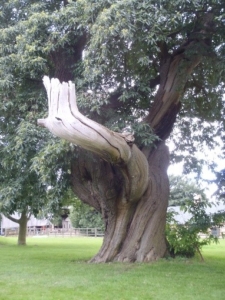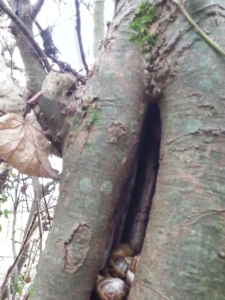Bats In Winter
I can strongly recommend Pat Waring’s Bats in Winter Course as a good opportunity to think about what bats are doing between November and March, 5 months of the year, and why so little weight is given to surveys for them, or assessing winter use in a report, unless a site has the classic features of an underground hibernation site. The overview ties in with E3’s findings over the years that bats are active all through the year when the weather is suitable, that pipistrelles can turn up all over the place, and that remote detector or thorough survey (being aware of the risk of disturbing bats at a time when they are stretched for food resources) can find BLEs and Myotis in the same types of locations you would expect to find them in the summer. The one disadvantage of winter survey work is that it cannot be used to prove the likely absence of bats.

Considering winter as a safe time to do building works on any ‘batty’ structure has to be viewed with great scepticism, particularly as with mild winters the driver to find hibernation sites that are safe from prolonged periods of sub-zero weather is greatly reduced. Pat is surveying woodland bat boxes through the year and finding that timber crevice roost boxes that are open at the bottom, allowing quick torch checks within minimal disturbance, are used more in the winter than in the summer (he does not check the Schwegler boxes in winter as opening them up causes too much disturbance). We found three pips in a box in January during the course.
Pat also highlighted that torpor and hibernation are a continuum, bats can drop their body temperature to minimise energy use whenever they need to and roosts with a stable cool temperature can be as useful to get through a very wet and windy summer period as a to avoid cold winter weather.
So a good opportunity to get those Anabats out of the cupboard and earning their keep over the winter for some core research on where your local bats are in the winter. Also worth bearing in mind when you are thinking of redevelopment in the future.



